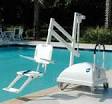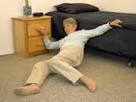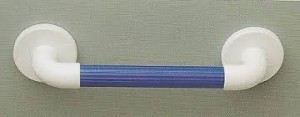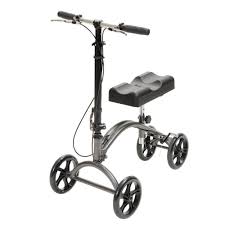No matter your age, sleeping well is essential to your physical and emotional well-being. In fact, many physicians consider a person’s sleeping habits to be a valid barometer of his or her overall health. Sleep allows the body to repair any cell damage that may have occurred during the day; it refreshes the immune system and helps prevent disease. Sleep is also important for keeping the mind sharp, improving both concentration and memory.
While sleep requirements vary from person to person, most children and adolescents need more sleep than young and middle-aged adults. However, older adults generally begin to need more sleep as they age – from seven to nine hours per night. Unfortunately, many older adults often get less sleep than they should for a variety of reasons.
One reason is that as we age, our bodies tend to produce and secrete lower levels of melatonin, the hormone that promotes sleep. But age alone does not cause the majority of sleep problems; instead the following are the most common causes of insomnia and sleep problems in older adults:
- Poor sleep habits – irregular sleep hours, consumption of food or alcohol before bedtime, falling asleep in front of the TV
- Pain or medical conditions – having to urinate frequently, arthritis, asthma, diabetes, heartburn, hypertension, menopause, Alzheimer’s disease
- Medications – combinations of certain drugs, as well as their side-effects can impair sleep
- Lack of exercise – being too sedentary can cause one to either never feel sleepy, or conversely, to feel sleepy during the day
- Untreated stress or psychological disorders – anxiety, sadness, or emotional trauma can keep one awake
- Physical sleep disorders – snoring and sleep apnea occur more frequently in older adults
And sleeplessness, itself, can cause a variety of other problems, some of them merely annoying, like excessive daytime sleepiness, and some of them more serious, including an increased risk of cardiovascular disease, diabetes, weight problems, and breast cancer in women.
While some changes in an older person’s sleep habits, such as wanting to go to sleep earlier in the evening and waking up earlier in the morning are considered normal and non-problematic, other changes may suggest a sleep disorder that needs to be addressed. Common symptoms that should be checked by a physician include:
- Having trouble falling asleep even though you feel tired
- Having trouble getting back to sleep when awakened
- Not feeling refreshed after a night’s sleep
- Feeling irritable or sleepy during the day
- Having difficulty staying awake when sitting still, watching television, or driving
- Having difficulty concentrating during the day
- Relying on sleeping pills or alcohol to fall asleep
- Having trouble controlling your emotions
There is no reason for an older adult to forego a good night’s sleep simply because he or she is aging. Because regular sleep patterns are so important, in order to maintain good health, vitality, and emotional well-being, older adults should attempt to practice those habits that promote the necessary and uninterrupted hours needed by mind and body. These include:
- Limiting caffeine intake late in the day
- Avoiding alcohol before bedtime
- Avoiding big meals or spicy foods before bedtime
- Minimizing liquid intake before sleep
- Exercising regularly
- Limiting mental stress and worry as much as possible, especially at night
- Remembering to get some sunlight during the day (bright sunlight helps regulate melatonin production and the body’s circadian rhythms, or sleep-wake cycles)
- Keeping the bedroom cool, dark, and quiet
- Developing sleep-inducing bedtime rituals such as taking a warm bath, listening to calming music, or practicing stress management techniques, such as deep breathing, meditation, getting a massage, or engaging in sexual activity
- Limiting the use of sleeping aids and pills
- Talking with a therapist to deal with emotional trauma or depression
Getting a good night’s sleep and maintaining a regular sleep pattern is something all folks should strive toward accomplishing. The benefits are well worth all of us taking the time to review our sleep habits. Sleep Well!
President, Husband, Father, Grandfather Graduate of UC Davis- Bio Sci Major- Go Aggies! Jeff has extensive experience in all of Pacific Mobility’s products and services, and specializes in accessibility products as well as stairlifts, ceiling lifts and custom wheel chairs. His hobbies include spending time with family, gardening, mountain biking, exercising and off road motorcycle riding.
24 years as Owner/President of Pacific Mobility Center – selling, installing, and servicing stairlifts, porch lifts, ceiling lifts, pool lifts, handicap ramping, specialty wheelchairs, scooters, power wheel chairs, and other power mobility devices
Certified Environmental Access Consultant since 2008
Licensed General Contractor since 1998
Certified Aging in Place Specialist since 2016
Board Member for Home Access Professionals
Member of Association of Members of the Accessibility Equipment Industry (AEMA)







